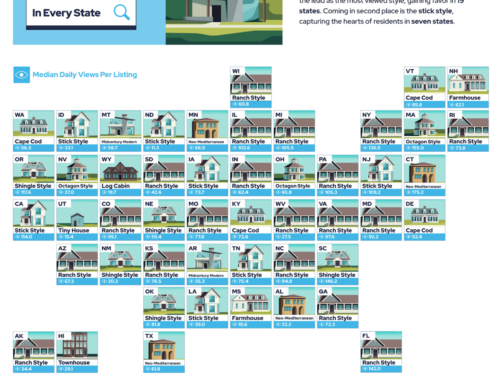
The 30-year fixed-rate mortgage reversed course this week, moving up to a 2.81% average. That marks its highest point since mid-November, Freddie Mac reports.
“Economic spending has improved, due to the most recent stimulus, but supply chain shortages are causing downstream inflation, leading to higher mortgage rates,” says Sam Khater, Freddie Mac’s chief economist. “While there are multiple temporary factors driving up rates, the underlying economic fundamentals point to rates remaining in the low 3 percent range for the year.”
Indeed, mortgage rates continue to hover near record lows. The all-time low for the 30-year fixed-rate mortgage was 2.65%, set in January.
Freddie Mac reports the following national averages with mortgage rates for the week ending Feb. 18:
- 30-year fixed-rate mortgages: averaged 2.81%, with an average 0.7 point, rising from last week’s 2.73% average. Last year at this time, 30-year rates averaged 3.49%.
- 15-year fixed-rate mortgages: averaged 2.21%, with an average 0.7 point, increasing from last week’s 2.19% average. A year ago, 15-year rates averaged 2.99%.
- 5-year hybrid adjustable-rate mortgages: averaged 2.77%, with an average 0.2 point, dropping from 2.79%. A year ago, the average ARM averaged 3.25%.
Freddie Mac reports average points along with commitment rates to better reflect the total upfront cost of obtaining the mortgage.
Source: magazine.realtor
Photo by Karolina Grabowska from Pexels






